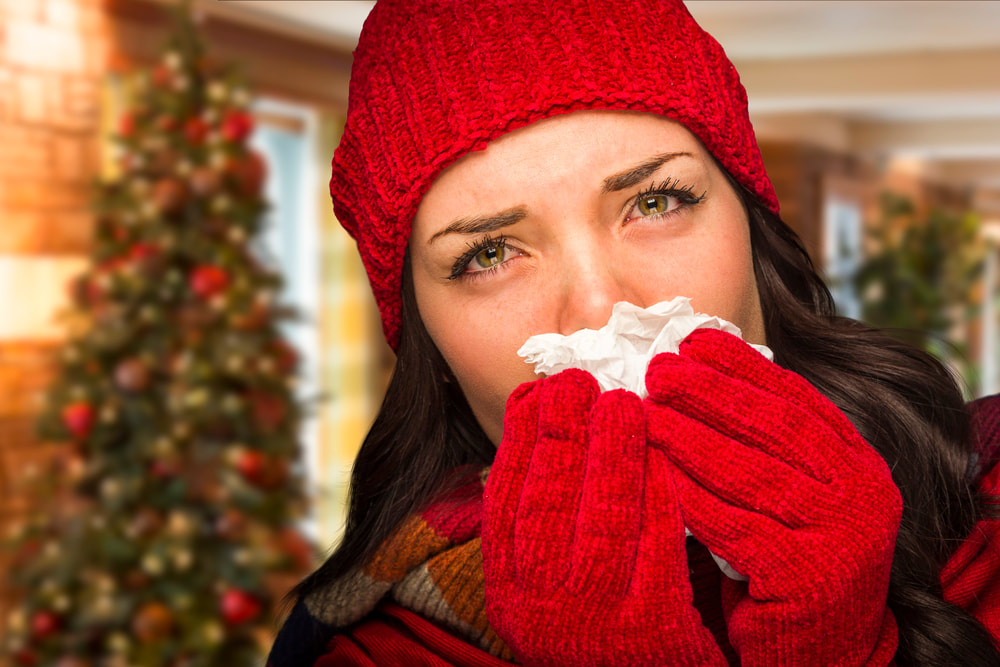Eye infections and other problems can also develop during the winter season, but armed with the right information, we can decrease our risk of getting sick and keep our eyes healthy. Why are we more likely to get sick in the winter?You can get sick with a cold or flu at any time of the year. But according to the Centers for Disease Control and Prevention (CDC), flu activity is often more common from October through early spring. We are also more likely to catch a cold in the winter months. Part of the reason is viruses tend to live longer in the winter months when the humidity level is low combined with colder temperatures. Most of us also usually spend more time indoors when it is cold out. Increased time inside means viruses can spread easier from person to person. Winter Eye Health TipsAlthough it is important to keep your eyes healthy year-round, there are a few additional considerations during the winter months. Consider the following suggestions:
Be sure to protect your eyes During the overcast days of winter, you might not think you need to wear sunglasses. But the sun’s rays can still damage your eyes, especially if you spend time in the snow. The light reflects off the snow and can lead to sunburn. Similarly to how your skin can burn, your eyes can also sustain sunburn. Anytime you are outdoors during the day time, regardless of the season, wear sunglasses that provide 100 percent UV protection. Wash your hands often One of the best ways to prevent the spread of infection this winter is by washing your hands. Not everyone washes their hands thoroughly. According to the CDC, lather up with soap and rub your hands together for about 20 seconds. Rinse well and dry. Washing your hands well decreases your risk of colds, the flu, and eye infections, such as conjunctivitis, which is more common in the winter. Stick to the basics Keeping your immune system strong will help decrease your risk of getting a cold, flu, or other infection, including an eye infection. Getting enough sleep, eating a well-balanced diet, including lots of fruits and veggies, along with regular exercise, helps keep your immune system functioning well. Treat dry eye Dry eye may increase in severity during the winter months. Your eyes need a certain level of moisture to stay healthy, and the cold and wind can dry them out. If you have symptoms of dry eyes, talk with your eye doctor. Both over the counter and prescription eye drops and artificial tears can help. Avoid rubbing your eyes Whether you are tired or are just taking a break from your electronic devices, we often rub our eyes without even thinking about it. It is easy for viruses or bacteria to enter the body by rubbing your eyes. Try to be mindful and avoid touching your nose, mouth, or eyes without washing your hands. Use a humidifier To combat winter eye dryness, consider using an indoor humidifier to boost the moisture level in your home. Just do not go overboard and allow the humidity level to go too high, which can lead to mold growth. The Environmental Protection Agency recommends keeping indoor humidity at 30 to 50 percent. Use a humidity gauge, which is available at hardware stores, to measure the indoor moisture level. We hope by taking the above steps, you and your family can keep your eyes healthy this winter. If you have any questions or would like to schedule an appointment with one of our eye doctors, please call our office at 508-746-8600. Comments are closed.
|
EYE HEALTH BLOGCategories
All
Archives
July 2024
|
|
Kadrmas Eye Care New England
55 Commerce Way, Plymouth, MA 02360
14 Tobey Road, Wareham, MA 02571 133 Falmouth Road (Rt 28), Mashpee, MA 02649 |
Phone Number:
1-508-746-8600 Hours: Monday through Friday — 8 AM – 4:30 PM |


 RSS Feed
RSS Feed
